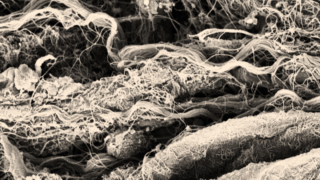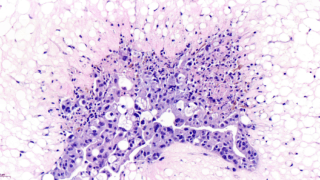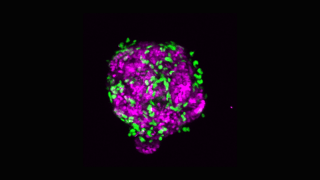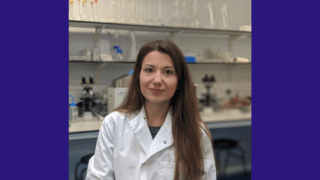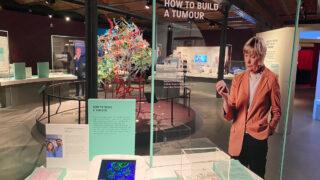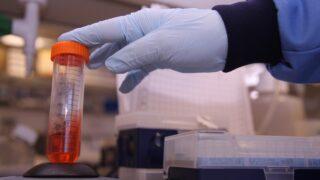Tag: Microenvironment
Search News
Categories
Archives
Ovarian cancer’s protective barrier: how the tumour matrix teaches cells to disarm immune attack
15th May 2023
The results suggest new strategies to overcome the cancer’s defences and treat patients more effectively
Read moreThe REMODEL project: Remodelling tumour microenvironments to improve immunotherapy
12th October 2022
Professor Fran Balkwill from Barts Cancer Institute at Queen Mary University of London has received a UK Research and Innovation (UKRI) Frontier Research grant of over £2 million to investigate the most effective ways to remodel cancers to enhance the effects of immunotherapy.
Read moreTargeting healthy cells changes invasive behaviour of pancreatic cancer
25th January 2022
Researchers from Barts Cancer Institute at Queen Mary University of London, led by Dr Angus Cameron, have found a way to modulate the invasive behaviour of pancreatic cancer by targeting a non-cancerous cell type found within pancreatic tumours. The findings, published in Cell Reports, provide valuable insights into the biology of pancreatic cancer progression, and could help to drive improvements in cancer treatment.
Read moreOvercoming drug resistance in breast cancer
28th October 2021
In recognition of Breast Cancer Awareness Month, we spoke with Dr Ioanna Keklikoglou, Lecturer and Group Leader in the Centre for Tumour Microenvironment at Barts Cancer Institute, Queen Mary University of London. Dr Keklikoglou’s research focuses on understanding the molecular and cellular mechanisms that control resistance to anti-cancer therapies in breast cancer.
Read moreBCI research features in new Science Museum Group exhibition on cancer
25th October 2021
A research project led by Professor Fran Balkwill from Barts Cancer Institute at Queen Mary University of London features in a world-first free exhibition exploring the revolution in science that is transforming cancer care.
Read moreMapping the emergence of treatment resistance in leukaemia
28th September 2021
Research led by Barts Cancer Institute, Queen Mary University of London, has identified a new role for a group of cells called adipocytes in contributing to treatment resistance in a type of leukaemia. Published in Nature Communications, the findings broaden the understanding of resistance pathways in blood cancer cells, which is critical for developing novel treatment strategies to improve outcomes for people with leukaemia.
Read more